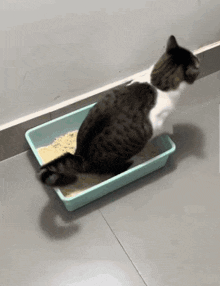After nights upon nights of cramming, seemingly endless homework, and a severe lack of sleep, summer break is finally around the corner! However, with such a big block of time away from school and other commitments, many students find themselves lost on how to best plan out their summers. Planning for a fun yet productive summer is key, especially for rising juniors or seniors who are planning to apply to college. Below are 5 essential tips to keep in mind when planning out your own summer.

Image credit: Engin Akyurt from Unsplash
Let us slide into your dms 🥰
Get notified of top trending articles like this one every week! (we won't spam you)1. Set Concrete Goals
Throughout the year, you've probably desired to start doing numerous things, yet have lacked the time to get started on them. Summer is the perfect time to finally get started on those things! Personally, throughout this school year, I've been keeping a running list of activities I'd like to complete once time clears up, such as learning calligraphy, learning new vocabulary daily, and reading more often. As planning is the first step to success, explicitly writing down your goals for this summer is crucial. When compiling your goals for this summer, here are a few things to keep in mind:
- Your goals should be a mix of academic, fun, and social activities! The whole point of summer is to take time to relax, reflect, and delve into new passions and hobbies.
- Don't overbook yourself! I find that when I set too many goals, I end up accomplishing less of my goals than when I set a few concise and specific objectives.
- Chunk up goals in small, measurable actions. For example, if one of your summer goals is to work out more, create weekly workout schedules that specify the length and type of your daily workout.
- Try to put your goals list in a place where you look or check often (such as above your desk).

Image credit: Andrew Neel from Unsplash
Take the Quiz: What Type of Notes Should I Take?
Discover the best note-taking method for your learning style!
2. Start Prepping For The College Admissions Process
The college application process can seem nerve-wracking for many teenagers, but it doesn't have to be that way! Through correct planning and time management, much progress can be made throughout the summer. Below are some recommended actions you can take to help you make progress with regard to the college admissions process, depending on your grade level.
Rising Freshmen:
Don't worry, you have plenty of time before college admissions! Use this summer, and this school year in general, as a time to explore your passions and interests. Joining a vast array of clubs and activities will allow you to get a sense of what you most enjoy doing, helping you determine what to further delve into in future years.
Rising Sophomores:
Now that you've dipped your toes into high school, use this summer to reflect. Which activities did you enjoy doing? Which activities can you consider dropping?
Choosing a focus area to guide you throughout sophomore year is key to deepening your extracurriculars and landing leadership roles. Your focus area can also potentially help you with career exploration. For example, if you really enjoyed being a member of STEM club this school year, you may consider a career in the STEM field, and should utilize this summer to research additional STEM-related activities. This summer is also a good time to start doing some research on potential scholarships and competitions you can enter, as many are open to sophomores. I would recommend creating a spreadsheet or other document to store the opportunities you find. This way, when the school year starts back up, you'll feel organized and prepared to start entering scholarships and competitions.
Rising Juniors:
Junior year summer is a crucial time for the college admissions process. A main thing you should get started on is prepping for standardized tests (specifically the SAT or ACT). When the school year starts, things can get hectic (especially if you're planning on taking advanced academic classes), so getting started on test prep can really give you a head start.
Like in sophomore year summer, you should use junior year summer as a time to reflect on your past year and set some concrete goals for your Junior year. This summer can also serve as a good time to start crafting your college list, which will help you plan out college visits for this upcoming year.
Rising Seniors:
Rising seniors, you're nearing the home stretch! This summer, you should work on drafting your final college list, and begin writing and refining your college essays. Personally, I feel that I write better and more efficiently when I'm outside of the stress of academics, so the summer serves as the perfect opportunity to get a kick start on your essays.
Moreover, this summer is the last chance to hone in and further deepen extracurricular activities before applying to college. Like in sophomore and junior summer, applying to scholarships and competitions can also serve as a last-minute resume booster, and can mitigate the cost of college.

Image credit: Dimhou from Pixabay
3. Leave Time For Family and Friends
While working on strengthening your resume and preparing for college admissions over the summer is smart, you shouldn't neglect time connecting with family and friends! In fact, avoiding social interaction can decrease productivity. Therefore, before going on summer break, try planning out a few outings with your friends. The busyness and stress of the school year can in many cases impede time spent with friends and family, so try to make a conscious effort to go on social outings, and most importantly, to have fun this summer!

Image credit: Unsplash+ from Unsplash
4. Consider Getting a Job/Internship
If you're destined to stay mostly at home this summer, consider getting a job or an internship! Not only can a summer job or internship help you earn some extra money, but working a job also provides you with a sense of routine and consistency, which helps increase productivity. Jobs and internships are also great for forming new connections. Furthermore, if you can land a job, internship, or shadowing experience relating to a field you're interested in, you can get a taste of what working in the field is like, while simultaneously boosting your resume.

Image credit: Zack Betten from Unsplash
5. Take Time to Relax!
At the end of the day, the point of summer break is to relax! You've worked so hard this year, and deserve a much-needed break. Try to take at least a week or two off during the summer from engaging in academic-related work if you can.
Make an effort to engage in self-care activities, trying to limit screen time as much as possible. Think of the summer as a time to reset, rejuvenate, and prep for an amazing upcoming year!
I hope these key tips can help you plan out your most productive and fun summer!

















